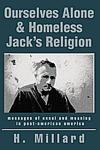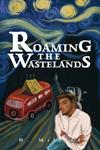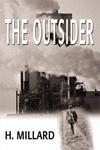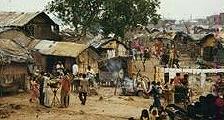 |
|
Buncha greedy big bucks developers and their pals in the local guvmint came in and kicked some 90 year old grannies out of their homes so they could build some shopping centers. Damn shame. What ever happened to our sacred property rights? Stupid Supreme Court. Gang of commies, that's what they are. |
That's the story some rich landowners want you to believe as they try to make allies out of many of the little guys who often don't have much more than a pot to piss in, but who get their knees jerking over the government doing this or that. Before any of my fellow little guys give in to those types of reflexive thoughts, they should think it through and consider that there may be another side to the recent Supreme Court decision on eminent domain (as well as the ones on religion, but that's for another column) that might actually benefit the little guys. |
|
As far as eminent domain goes, most people know that cities have pretty much always been able to take land for public purposes--roads, public buildings, and the like. The new deal is that they can now take it for private developers. That's the rub, in many people's minds. A little philosophical waxing on some simple truths might help put some of the angst over eminent domain generally, and this new Supreme Court decision in particular, in a different light. In the first place, owning land is an invented and artificial concept. Please excuse me if this sounds a little too new agey, but the earth has been here for several billion years. Humans and their more primitive relatives have been around for a couple of million years. The U.S. has been here for a couple of hundred years. We, as individuals, might live a hundred years. Now, with all of that in mind, what makes any of us think that given our measly short lives, as compared to the grand flow of time, that we have some sort of sacred right to "own" a piece of this billions of years old planet? Who gave us that right and where did their right to give it to us come from? The answer is that we invented that right and we use force to maintain it. We own land because we say we own land. Period. Might makes right. Our property rights today are just a twist on the old story of the sovereign (often a king) owning all the land in a nation and of him letting some of the people use certain parcels of the land at his pleasure. Today, the sovereign is the state. The state lets us use its land, but likes to keep us thinking that we, as individuals, own it. The joke's on us, if we really believe that we own the land. |
|
By being citizens of the U.S. we have tacitly given up some of our freedoms--including the right to absolute ownership of land--that we would have if we were able to live on some planet someplace all by ourselves. That's what the social contract is all about. We give up this and we get something in return, such as having our friggin' borders protected from friggin' invading hordes of friggin' illegal aliens--CRIPES!--don't get me started on that big breach of the social contract by the George Bush government or I'll never get back to eminent domain. Anyway, the concept of land ownership is nothing more than one of those fictions humans have invented to tone down the law of the jungle. If you could trace your land title back far enough, you'd probably find that at some point your land was simply taken by someone who invented, either alone or in concert with others, an ownership right out of thin air. As such, the original title to your land had as little genuine validity as a title document written by some con man trying to sell the Brooklyn Bridge. Over time, your title was perfected by the power of the state which invented the fiction in the first place. In other words, you don't really own land and you have no sacred right to do so. You simply have a license to use that land at the pleasure of the state, and the state has agreed to use force to keep others from taking that land from you--so long as you pay taxes to the state and do some other things that the state wants. Stop paying your taxes and see how long you own that land. Forget about land as something intrinsically valuable, and forget about having some sort of transcendent and absolute right to own it. It's just dirt. And, It was here billions of years before you and it'll be here long after you're gone. Your real stake in it is when you die and become part of it. While you're alive, you're just using it. If you want to lay claim to something valuable, you should look to your body and your genes, not dirt. But even with genes--which truly are valuable--and even though they are you and you are them, you may just be their keeper and not their real owner. Again, this is something for other columns. |
It should be clear to all that our right to use our property is dependent on the state. And, what the state gives, the state can take away. That's the way it is. That's the way society has evolved. The new Supreme Court decision is a logical outgrowth of how our society has been ordered. So, contrary to what some people are saying, the Supreme Court hasn't done anything radical at all. It has just interpreted the fiction of real property ownership and eminent domain a little differently to allow the state to force you to sell your property to the state, not only so the state can develop things that will benefit the citizens of the state, but also so that the state can use its power to take your property and deliver it to private developers who will develop things that the state thinks will be good for the state and its citizens. In a government of, by, and for the people this can be a good thing. And, this is a good reason for all citizens to become participants in their local governments so they have a say in what land is taken or not taken. Enough of the cracker barrel philosophy and back to reality and a real world example of why this decision, if used like a scalpel, and not like an ax, might be a good thing in some circumstances. I know of a place in the U.S. where there are two medium size burgs right next to the coast. Call these burgs Goldtown and Stinktown. They're both on the same bluffs with cool ocean breezes and ocean views. In Goldtown, today, there are homes on the bluffs that sell for several million dollars each. Goldtown also has one of the highest standards of living in the U.S. Its crime rate is extremely low, its kids score high on school tests, English is the main language. It's demographics are top drawer all around. It's about as ideal a place to live as can be imagined. |
Step over the imaginary border between Goldtown into Stinktown, and you'll think you've gone through some sort of space warp. Things suddenly, and I mean like taking one step this way or one step that way suddenly, are tawdry and cheap looking.
So, what happened to cause homes to be built on the Goldtown bluffs while industrial buildings went on identical bluffs in Stinktown? And, more importantly, what can the recent Supreme Court decision do to make Stinktown more like Goldtown? |
Ultimately, the high condition of Goldtown and the low condition of Stinktown resulted from the cumulative effects of many political decisions made by many different town councils in both towns over the years. The sweet seeds that bloomed into Goldtown being the beautiful flower it is today, and the bitter seeds that have grown into the weed that is Stinktown today, were planted about 50 or 60 years ago. At that time, Goldtown opted for homes on its side of the bluffs while Stinktown allowed oil wells on its side. At the time, land was cheap and plentiful. The oil wells could have as easily gone on the bluffs in Goldtown, but few did. In addition to political decisions in this regard, maybe the oil, buried deep in the earth below the bluffs, was just slightly easier to get from the part of the bluffs in Stinktown, or maybe it was just a toss of the coin. Whatever the reason, the homes went on the bluffs in Goldtown and oil wells went on the bluffs in Stinktown. Years passed, and eventually the oil wells in Stinktown started slowly closing down, one here and one there as they were replaced with more efficient off shore oil rigs. As the oil wells moved out, industrial buildings started moving in to replace them. Many of these industrial buildings were and are owned by citizens of Goldtown. At the time, the town fathers of Stinktown thought that the industrial buildings were a plus because they generated tax revenue for the town and such buildings seemed to be a good fit for the former oil fields. So, the town put in protective zoning and land use regulations that made the whole Stinktown bluffs an industrial area and kept the area from being developed with homes. |
Then, as even more years passed, the aforementioned illegal aliens came to the town to find work in the Stinktown industrial area. They packed into cheap apartments near the industrial bluffs and stood around on street corners waiting for jobs. When they found work they were often paid under the table and they had no health insurance or other benefits. How did they make ends meet? No problemo. Enter the highly paid charity bosses who opened their charities to take up the slack. Soon, the illegal aliens had about the same quality of life as Stinktown citizens even without making much money. What the illegal aliens needed, they got for free from the charities. They got free health and dental care, free bags of groceries, help with paying their rent and their utility bills, free day care for their kids, and more. Their kids got free breakfasts and lunches at the local schools. Soon, the feed one pigeon and you end up with a thousand pigeons principle was having an effect as many more illegal aliens came to Stinktown. Meanwhile, as a result of their presence, all the negative statistics of Stinktown started increasing and the positive ones started decreasing as Stinktown headed down to Third World levels. The illegal alien population increased to fill the resources the charities offered, and the charities kept offering more and more. Of course, the timid Stinktonians, ever fearful of being called racists, didn't say much about the devolution of their town. Many just moved away--"Oh, it's not because of Mexican illegal aliens, oh no, why we're not racists, we just want to move to a bigger (or smaller) home." You get the picture. I'll bet that today, there are many similar Stinktowns and timid Stinktonians all across post-American America. Now, as mentioned, many, if not most, of the rich industrialists who own land on Stinktown's bluffs mostly live upwind of their factories over in Goldtown. You don't go to the bathroom where you eat, as they say. Because they don't live in Stinktown, they can't vote in Stinktown. So, how do they protect their interests? The answer is as American as apple pie. They buy friendly politicians with campaign donations. Hey, I told you this is post American America. It's the free market system. So, there you have it. For many years, the rich industrialists from Goldtown, and their pals the charity bosses, and the slum lords, and some politicians have had a stranglehold on Stinktown. The place could never be improved because the industrialists wouldn't sell their land and the politicians helped keep the industrial area mired in downscale uses with protective zoning and land use regulations. |
Today, because of population pressures, a demand for ocean close homes, and other factors, there are economic pressures for the Stinktown bluffs to be converted to homes. If this were to happen, the demographics of Stinktown would improve overnight. Most of the citizens of Stinktown, who have bothered to think about this, are in favor of this change over to homes, and they're electing politicians who agree with them, but without the power of eminent domain or even the power inherent in being able to just threaten to use it, the Goldtown industrial bosses won't budge. Free market forces can't work if no one will sell their industrial properties to home developers. The Goldtown industrialists have long said that they won't sell at any price. Why? Because they bought their land many years ago and they're making money hand over fist from leasing out their properties for industrial uses. They want the Stinktown bluffs to remain industrial forever. Hey, they own the land. Screw the people in Stinktown. Land ownership is sacred. Right? The citizens of Stinktown have no say in what the industrialists do on their property. Right? Not anymore. Enter the Supreme Court with its recent decision. Now, with that decision in hand, honest Stinktown politicians have a tool to help put homes where they should be--where there are ocean views, and to put industrial buildings where they should be--in more inland spots or by the local airport. In Stinktown, it's not 90 year old grannies who may be forced to sell their land, but rich Goldtown industrialists who have been keeping Stinktown down in the dumps for too many years. |
|
# # # |
|
THREE BOOKS BY HARD TO PIGEONHOLE H. MILLARD All three books are now listed on Amazon.com. The lefties at the OC WEEKLY said Millard is one of OC's most frightening people. "Millard is an important writer" New Nation
News |

messages of ennui and meaning in post-american america by H. Millard In Ourselves Alone and Homeless Jack's Religion, H. Millard, the hard to pigeonhole author of The Outsider and Roaming the Wastelands, has put together some of his category bending commentaries on post-American America. The commentaries deal with politics, philosophy, free speech, genocide, religion and other topics in Millard's edgy style and lead up to Homeless Jack's Religion, in which Homeless Jack lays out revelations he found in a dumpster on skid row. Browse Before You Buy ISBN: 0-595-32646-3 |
 ROAMING THE WASTELANDS
ROAMING THE WASTELANDS - (ISBN: 0-595-22811-9) H. Millard’s latest sacred cow toppling book, is now available at Amazon.com by clicking on this link or by calling 1-877-823-9235. “A fun–and sobering–thing to read” - Alamance Independent |

THE OUTSIDER - (ISBN: 0-595-19424-9) |
|

 For many years, both towns were as remarkably similar in demographics as they are in geography and topography. Today, only the geography and topography remain the same. The first thing you'll notice as you step from Goldtown into Stinktown is that Stinktown has cheap industrial buildings on its bluffs instead of expensive homes. Then you'll notice suspected illegal aliens all over the place and cheap apartment buildings.
For many years, both towns were as remarkably similar in demographics as they are in geography and topography. Today, only the geography and topography remain the same. The first thing you'll notice as you step from Goldtown into Stinktown is that Stinktown has cheap industrial buildings on its bluffs instead of expensive homes. Then you'll notice suspected illegal aliens all over the place and cheap apartment buildings.